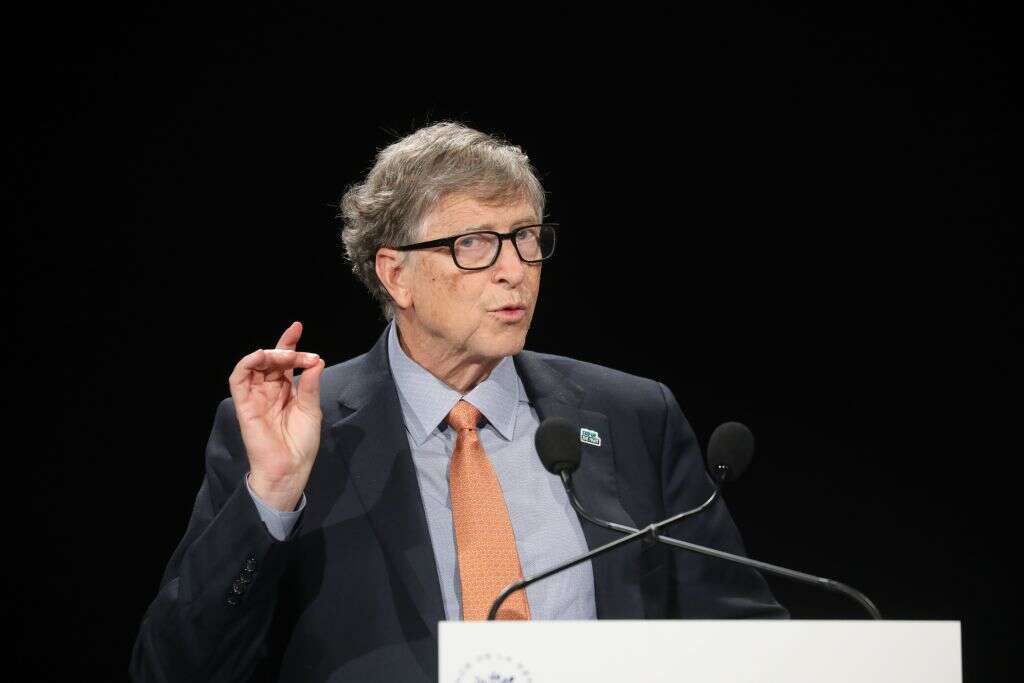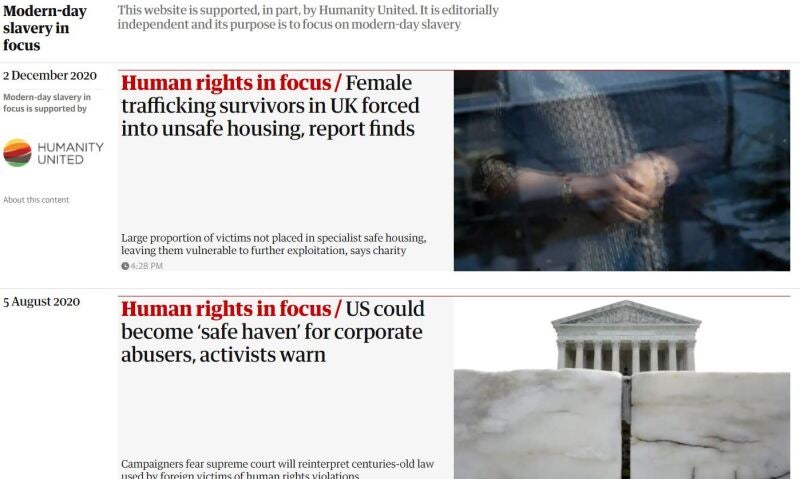
UK journalism has been supported by at least *£55m of philanthropy funding since 2019, according to Press Gazette research.
Our analysis – which looks at philanthropic support to newsrooms, large and small – is based on figures provided to Press Gazette by funders and recipients, as well as figures published on donor websites, the UK Charity Register and 360Giving. We also included estimates of Facebook and Google grant support for journalism (separate from the content syndication fees they pay publishers).
While representing a small fraction of newsroom revenue (UK media ad revenue in 2020 was £2.3bn according to AA/Warc), philanthropic support of journalism is growing as pressure on advertising and falling print sales have hurt other revenue streams.
Separate to our estimate, data from Media Impact Funders and Candid show that global philanthropic donations for journalism increased by almost six times between 2009 and 2018 from $75m to $419m. And although data collection for 2019 and 2020 is incomplete, early figures show 2020 is set to be a record-breaking year.
But while there’s more philanthropic money available for journalism than before, the UK still lags behind other countries – particularly the US – when it comes to grant-supported news.
In 2018 more than 80% of the funding recorded by Candid went to projects in the US. All of the 15 leading funders since 2009 are also US organisations. And although US data is more available to Candid, the figures are telling of US dominance in this space, says Nina Sachdev of Media Impact Funders.
Impress founder Jonathan Heawood, who leads the Public Interest News Foundation (PINF) which was set up in 2019 to funnel charitable donations to public interest reporting, says the discrepancy in funding levels is partly down to differences in philanthropic culture.
“In the States across all walks of life there’s vast amounts of philanthropic funding partly because there isn’t state funding in the same way that we have in the UK,” he says. “In particular in news, there’s a long tradition of philanthropists supporting independent non-profit news.”
As well as lacking a deep philanthropic culture, the strength of the UK press and the existence of the BBC means there’s less of a perceived need for philanthropic funding of things like investigative journalism says Rachel Oldroyd, managing editor of the Bureau of Investigative Journalism.
UK legislation also makes things more complicated.
Until recently journalism had not been recognised as a charitable endeavour in the UK, meaning even community interest outfits supported by donations such as The Bristol Cable have been unable to benefit from tax breaks and other charitable benefits.
“As things stand, it’s very difficult to get donations in a charitable way,” says Martin Moore, who directs the Centre for the Study of Media, Communication and Power at King’s College, London.
Instead, dedicated funders have had to find other ways of supporting journalism – either through non-charitable routes or by making sure funding also supports other goals such as promoting democracy or citizenship.
“At the moment there is a big hurdle to get over to get more philanthropy in the UK,” says Moore.
The funding challenges facing local and public interest news have, however, rekindled interest in charitable support for news in the UK.
Although its proposal that the government fund public interest journalism was rejected, the 2019 Cairncross Review into the state of UK news media underlined the importance of local reporting and public interest news.
Charity status was also extended to include journalism.
“People are starting to realise that there’s an ecology of journalism that you have to sustain,” says Moore.
“People are starting to see that that’s the case with local journalism and with specialist journalism. We have not found a way in which to sustainably fund certain types of journalism in the digital environment”.
One outlet that has largely sustained itself through grant-makers and philanthropists is the Bureau for Investigative Journalism.
With 30 members of staff, its funding model allows the investigative outlet to produce stories without worrying about commercial concerns, says editor Oldroyd. In 2019 it had funding from donors of £1.4m.
“We are not thinking about clicks, we’re not thinking about making sure that we are following a story because it’s going to get a massive weight or a massive audience. We are totally driven by public interest,” she says.
“If we believe we’ve got a story that is going to make a difference, but will take a year to do and will cost £100,000 to do and we feel it’s important, we can do it without having to think, ‘well, actually, this is not of any commercial benefit whatsoever’.”
While grant funding can help free organisations from commercial shackles, organisations – particularly those in receipt of grants from powerful funders such as the Gates Foundation – have been questioned as to how far donor agendas influence their reporting.
Although Oldroyd says that the Bureau has not so far found itself in a position where it would have to publish a negative story on a funder, if it came down to it she thinks the funding would not be a barrier.
“Hand on heart, would I run that story? I hope I would,” she says.
While Oldroyd says people overestimate the amount of pressure funders apply, she acknowledges that philanthropic support can skew coverage towards certain themes.
“There are lots of health funders therefore we can get funding to cover health,” she says. “There are lots of funders interested in corruption so you can get funded to cover that. But there probably are areas which should get coverage – poverty perhaps – where there just isn’t enough funding. So do we not do it?”
Guardian has raised $9m from donors over past year
Rachel White leads the Guardian’s philanthropic efforts and via its US-based non-profit vehicle TheGuardian.org.
She says that while checks and balances such as ensuring reporters don’t talk to funders helps maintain editorial independence, the nature of philanthropy means some stories are harder to cover.
Donor-supported articles are “editorially independent” but supported by a particular donor. So The Guardian, and the donor, agree the funding will be used to provide extra resources to fund journalism about a particular subject area.

“There are certainly instances where we have really good big ideas that just don’t match what’s available in the philanthropic marketplace,” she says. “We quite often find our way eventually towards funding for those things but it requires a little bit of us helping to develop that philanthropic market in order to get there.”
While White says philanthropic funding has allowed the Guardian to cover stories such as last year’s in-depth coverage on US voting rights in a way that would not have been possible without grant funding, philanthropic money is far from a given.
“The thing that’s most important to keep in mind about philanthropy is that it is not a constant,” says White. “You are beholden to a set of foundations who may change their priorities or may make different decisions.”
Even though last year was a record-breaking one for theguardian.org, which raised $9m from April 2020 to April 2021, the trajectory is not necessarily always upwards.
“[The increased funding] was in part that [the funders] all had a sort of a collective appreciation of the value of the journalism,” she says. “In part, it was also just that kind of existential fear that we were at so much risk and journalism was under so much threat. Usually, that doesn’t play as large a factor in our fundraising or in our relationships but I do think it was more significant this time.”
And while she says her team’s cultivation of internal relationships has mainstreamed philanthropy within the Guardian’s newsroom, White is keen to underline that it’s still a minor revenue stream.
“I would caution not to think of it as a core pillar of any revenue model because it is unpredictable,” she says. “Certainly for The Guardian the revenue source that we think about and focus on the most is reader revenue. Of course, philanthropy will be a very small piece of that and we’ll continue to seek advertising revenues. But I think it has to be part of a blend and I wouldn’t want to overweight the potential of philanthropy in anyone’s model.”.
She adds: “I’d like to think that the market has expanded although I continue to caution this is not a huge market by any measure. Not for us and not for anyone. Not at this point.”
While she says the Guardian’s ownership model might lend itself more naturally to being able to foster the creation of a philanthropic organisation affiliated with the Guardian, White hopes that the publisher’s success in fundraising has opened the door for donor supported-reporting more broadly.
“I’d like to think that we’ve played a valuable role for the news industry in bringing along a set of funders who wouldn’t have ordinarily supported journalism, where journalism is not one of their core program priority areas for their funding but where we’ve helped open some doors for these funders where they can now appreciate that journalism can be part of the portfolio around their other investments for issues that they’re concerned about,” she says.
Oldroyd says that although there have been difficult moments for the Bureau, fundraising for journalism has become easier.
“We’re not falling over funding and we don’t have hundreds of people knocking at our door but certainly when we approach funders and foundations there is a lot more openness to having a conversation about why a foundation or individual should be funding journalism,” she says. “Ten years ago it was a bit like: ‘Well, why would I want to do this?’”
*How Press Gazette arrived at the £55m estimate
Although no single source of information exists making it tricky to piece together a figure, our estimate includes support for journalism reported to 360Giving and The Charity Commission as well as data collected from the websites and press offices of key funders and recipients. The figure includes support to newsrooms – from small community-run outlets to national names, but excludes funding for journalism training. In some cases, we did not receive a response from organisations we contacted which means some funding is likely to have been missed. As far as possible we have tried to remove duplicates between figures. In most cases data provided was for calendar years however in some cases figures were only available for financial years. Some of the biggest funding sources we uncovered were the Gates Foundation, Luminate, the BBC (Local Democracy Reporters Service), Facebook (Community News Project) and Google.
Email pged@pressgazette.co.uk to point out mistakes, provide story tips or send in a letter for publication on our "Letters Page" blog
